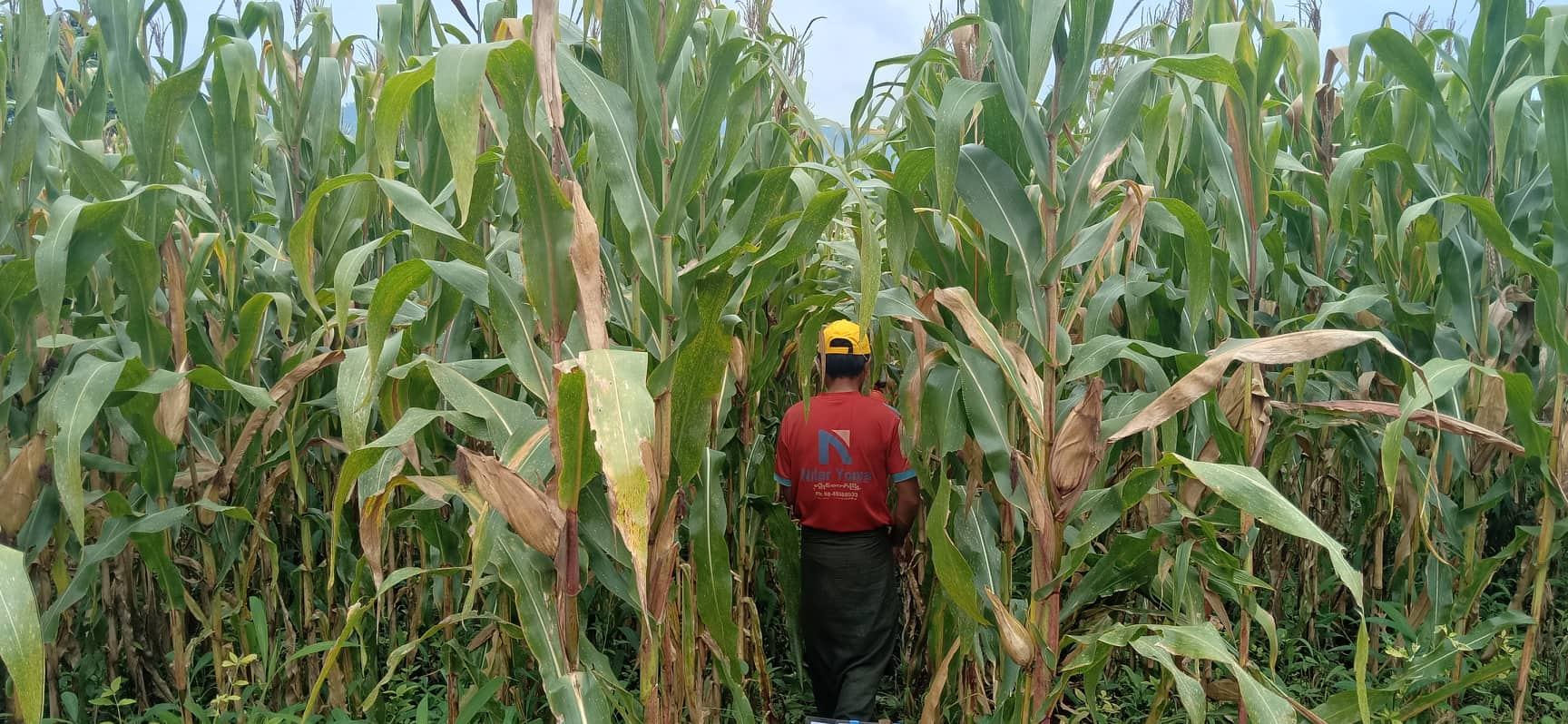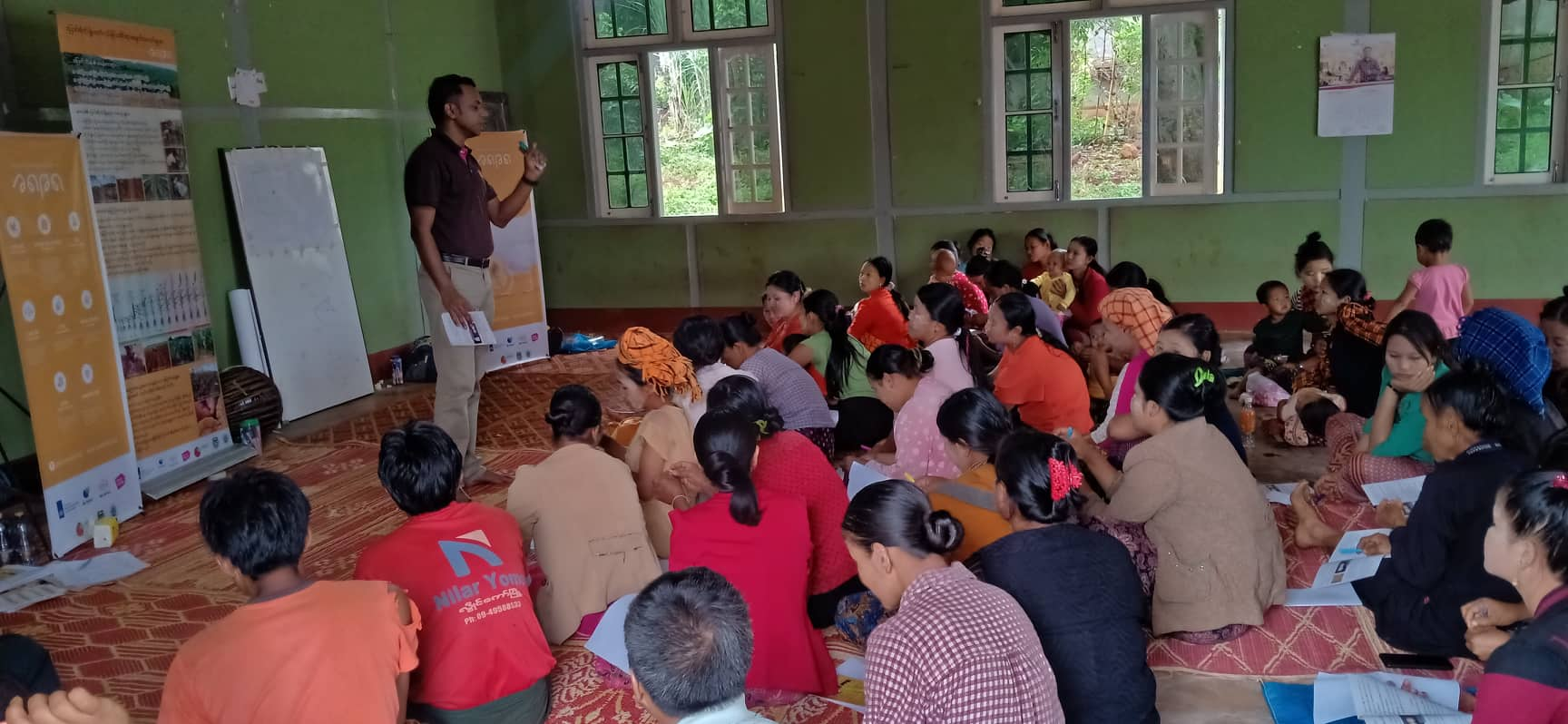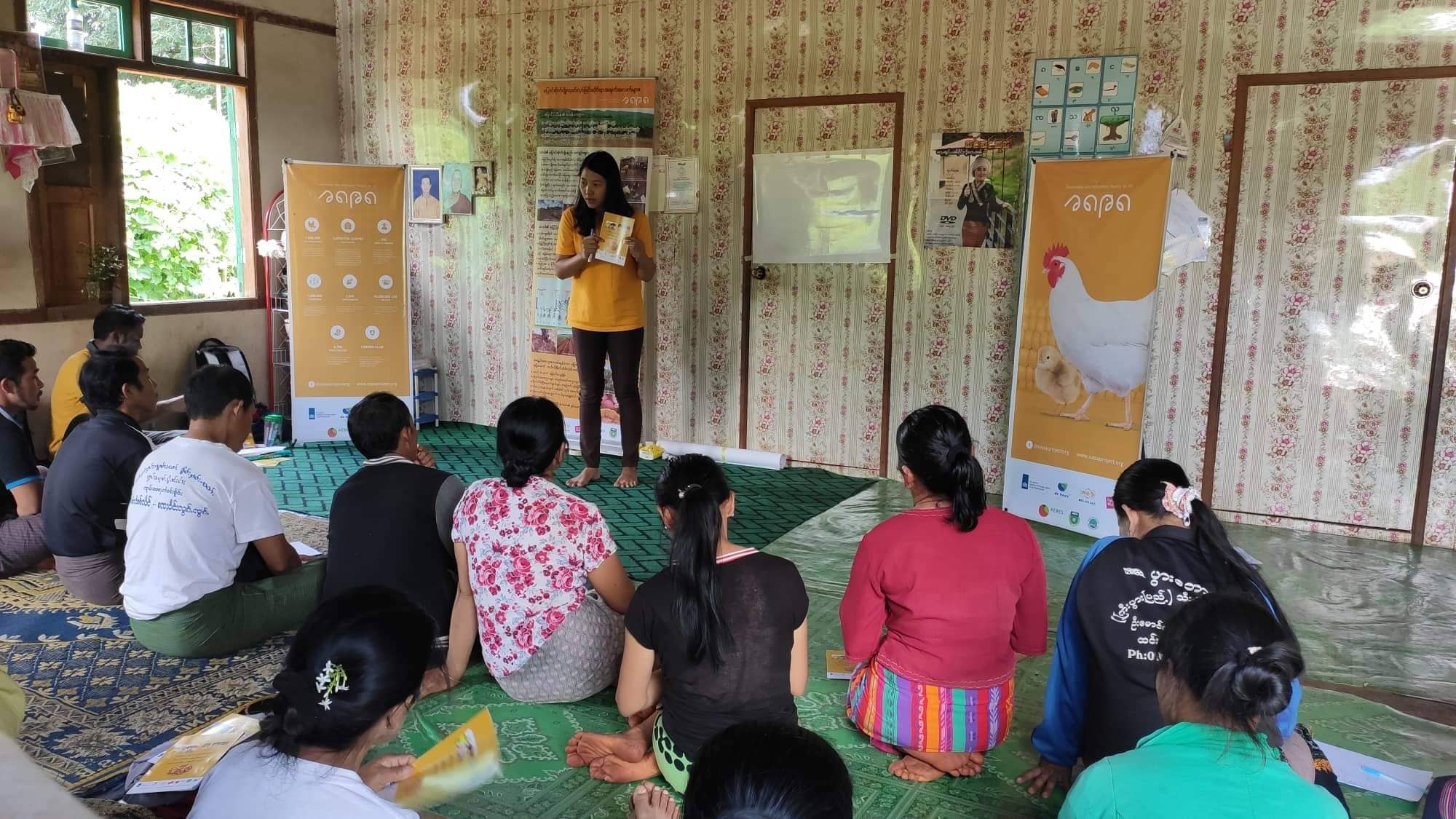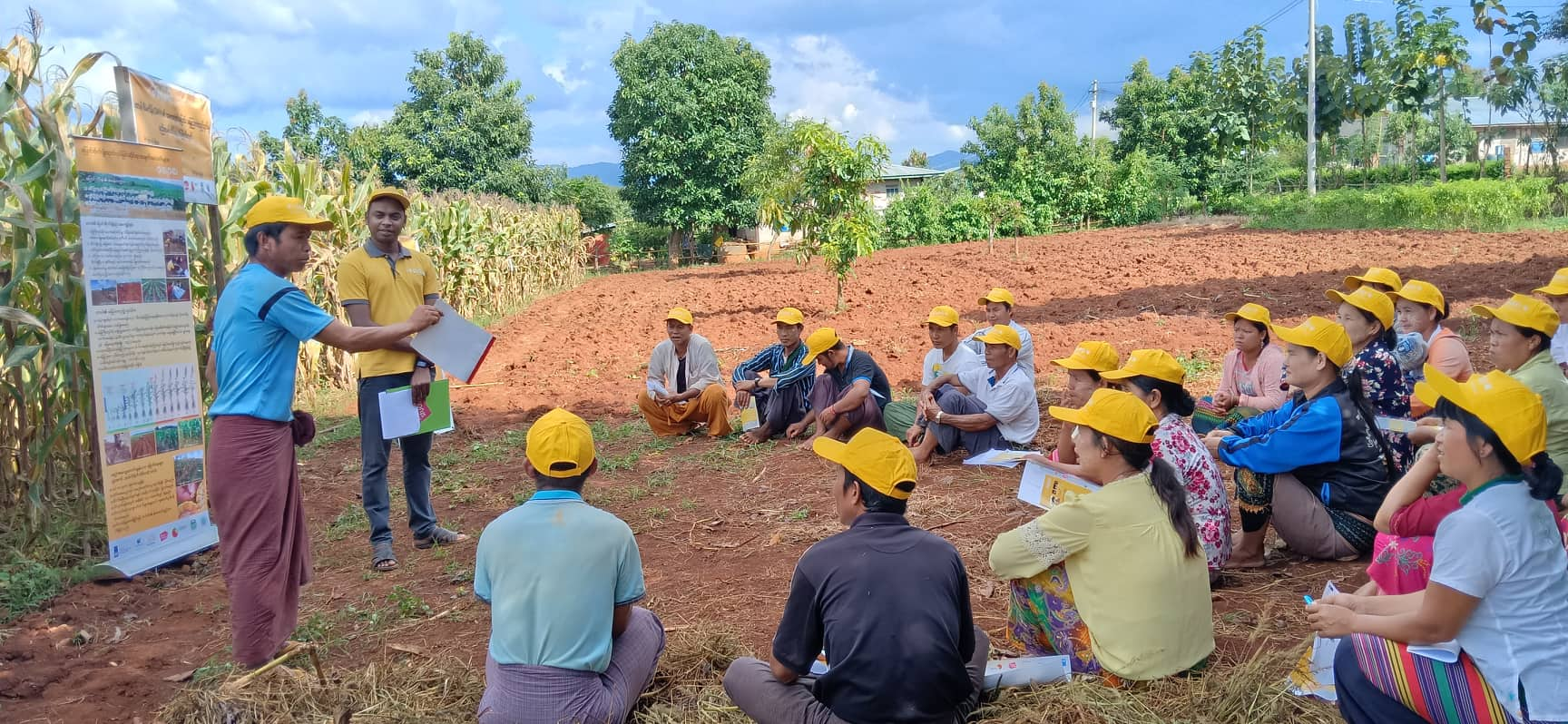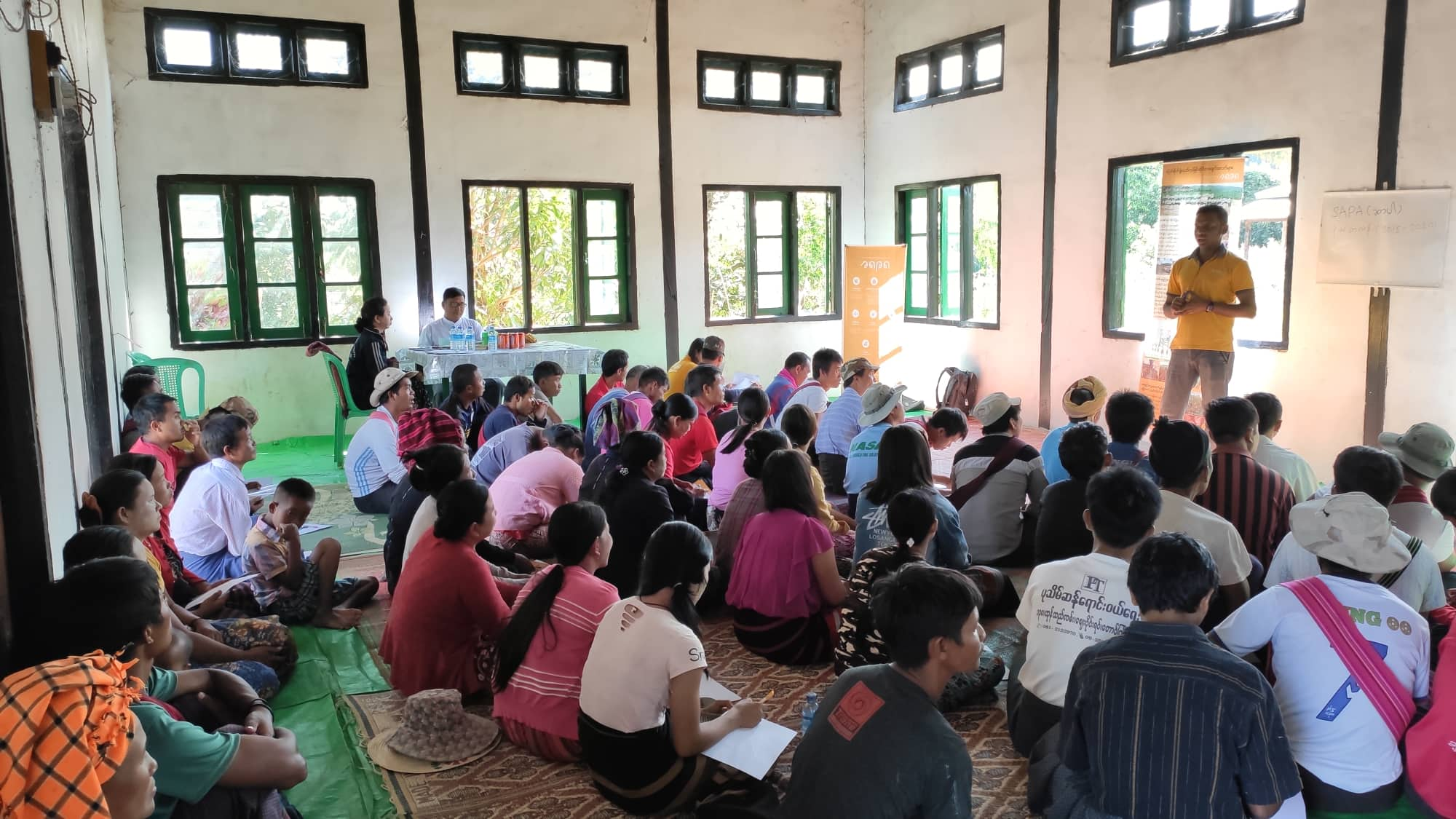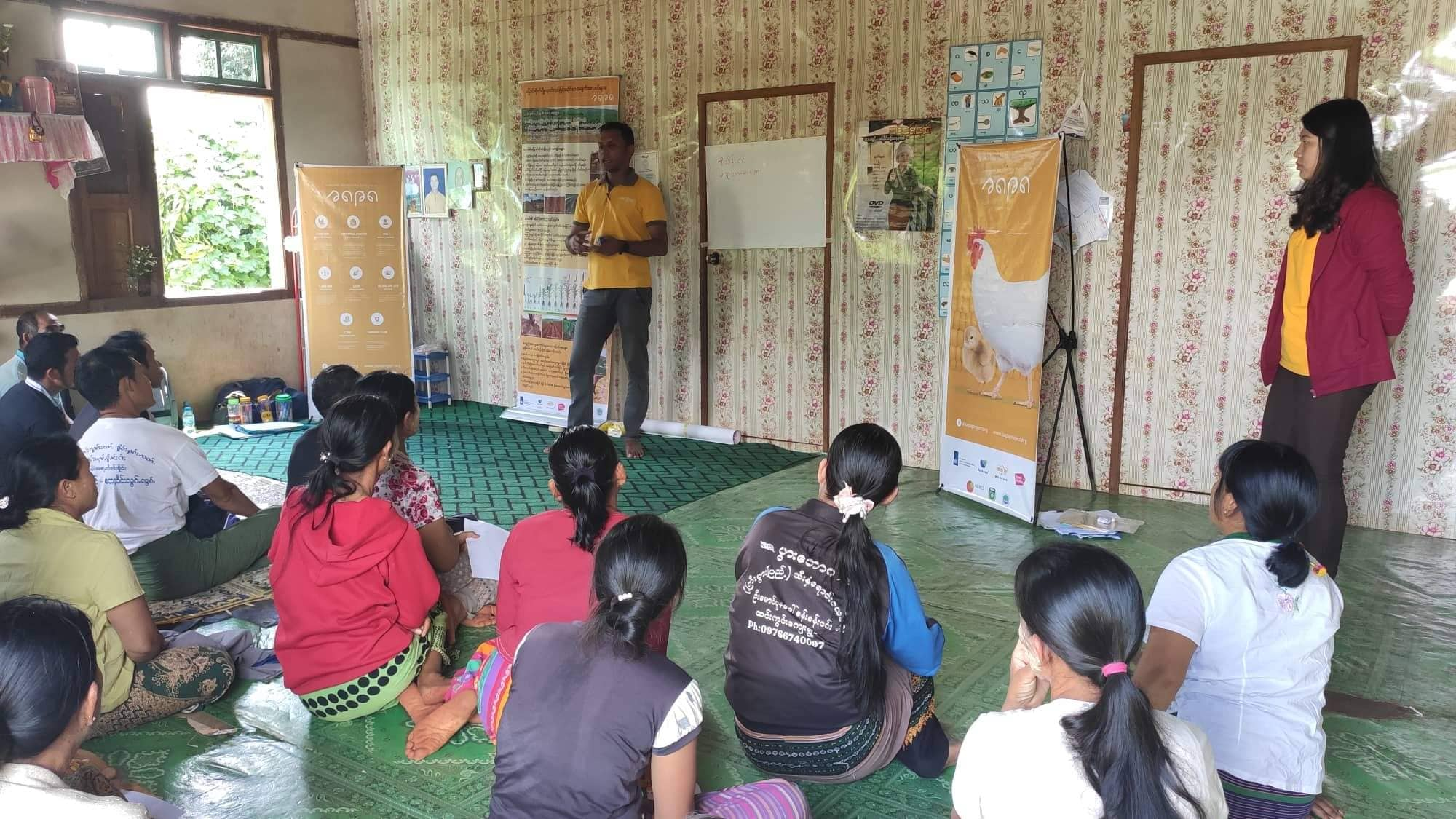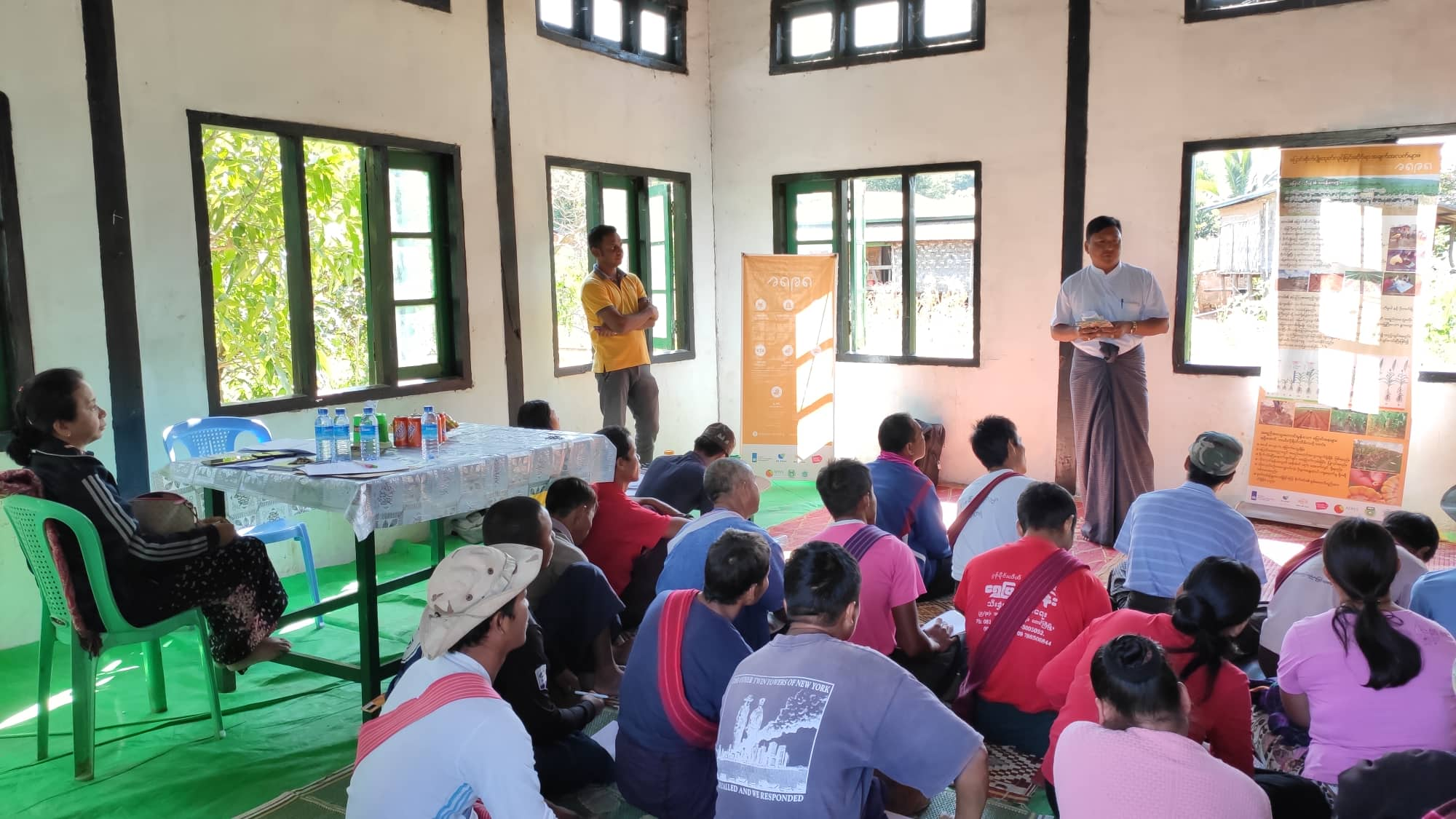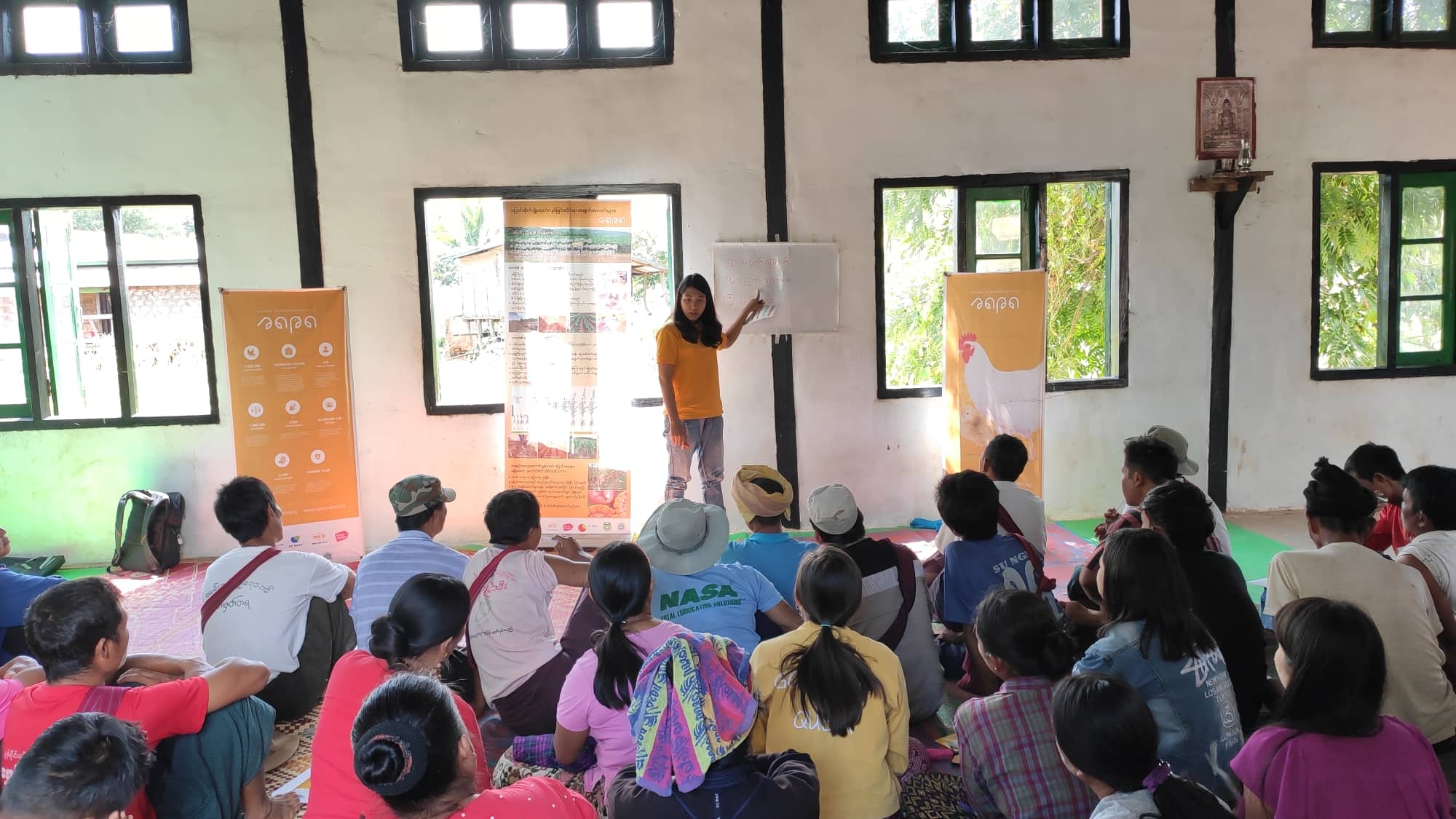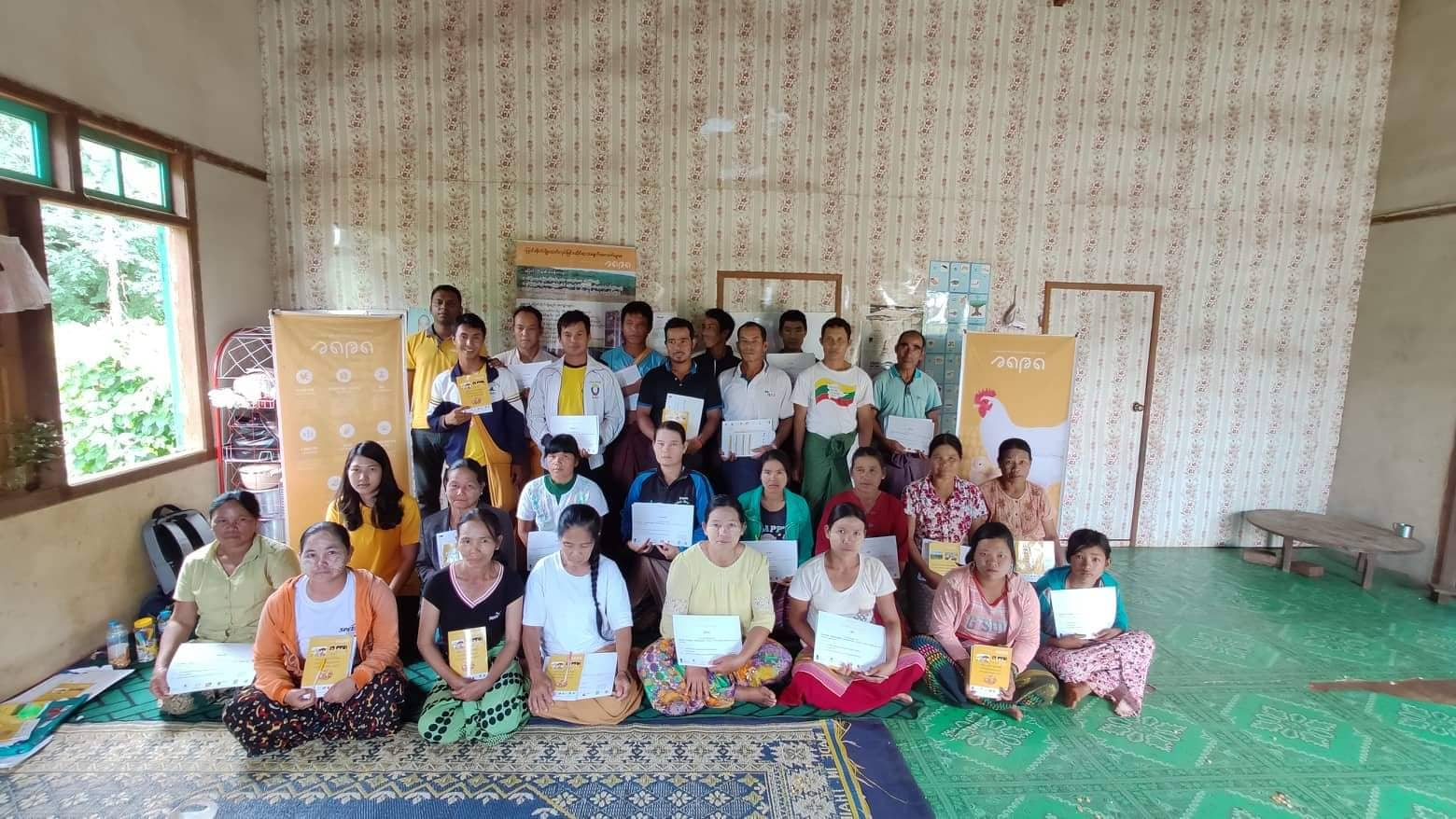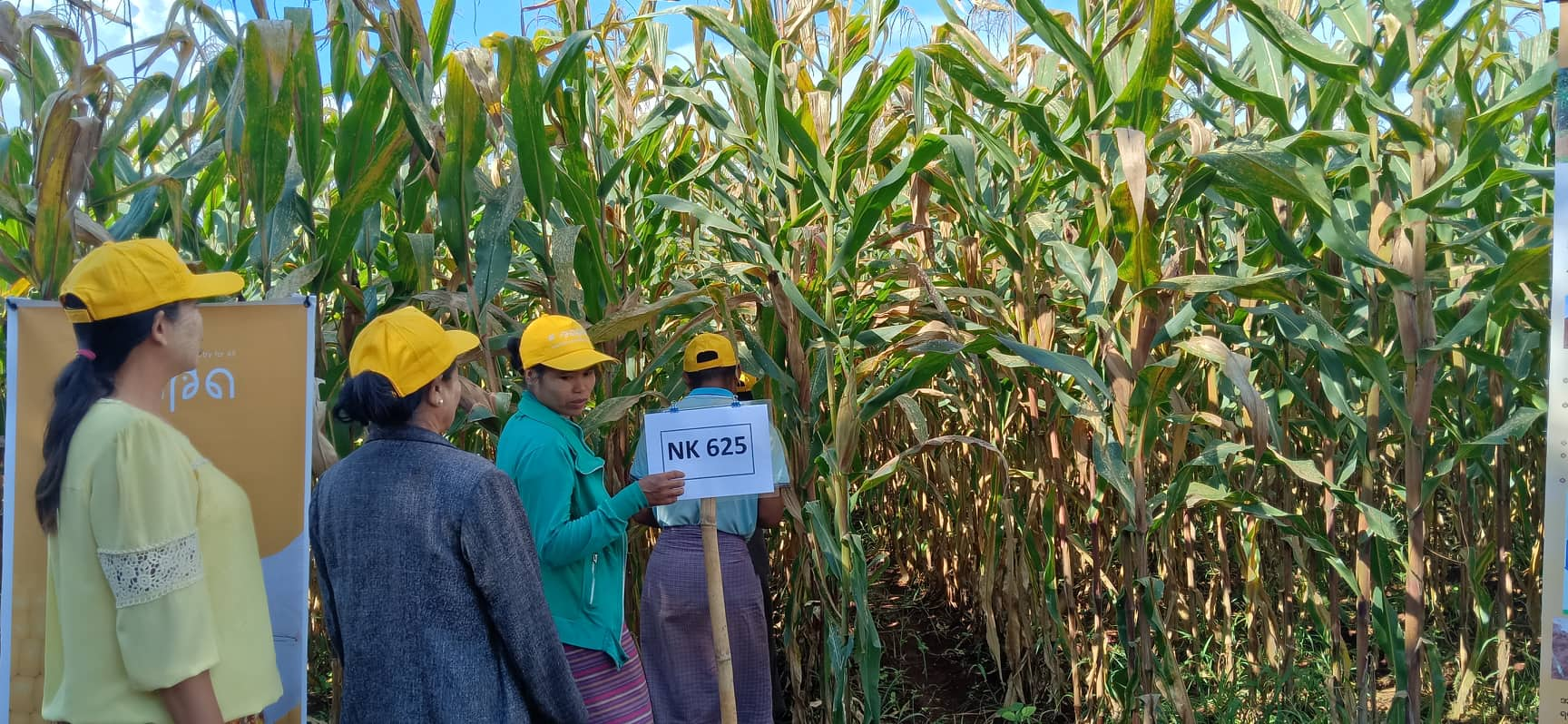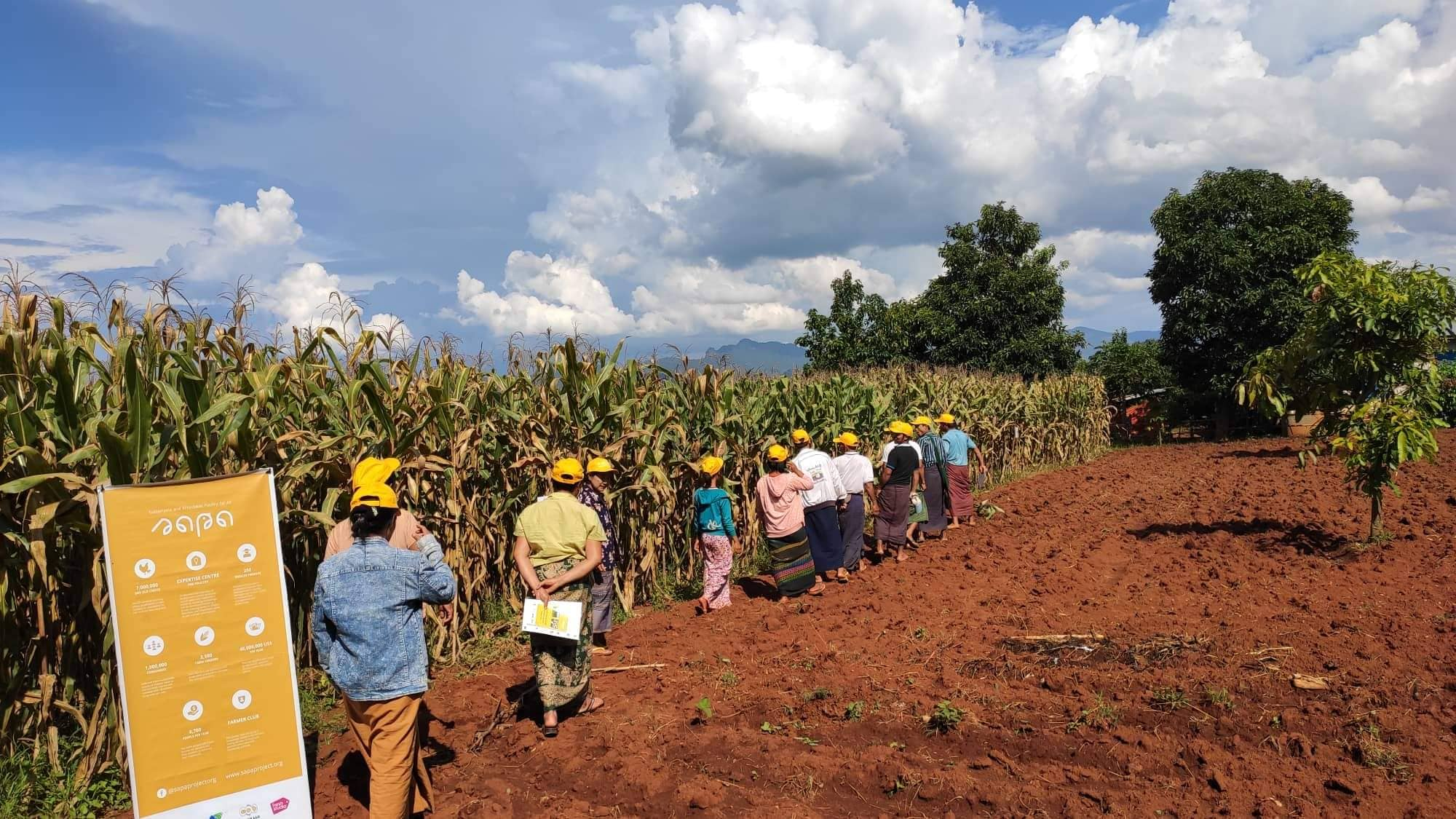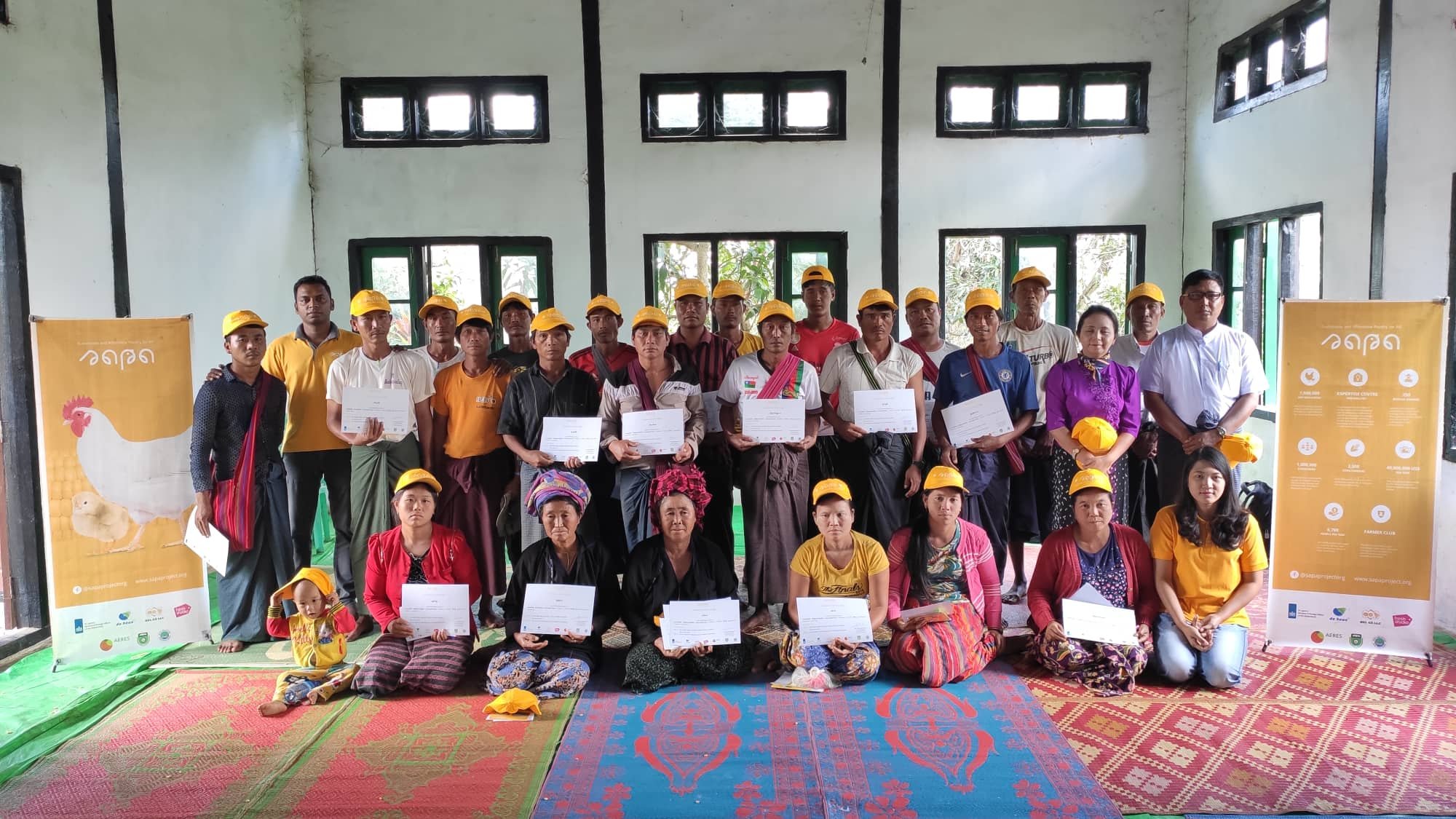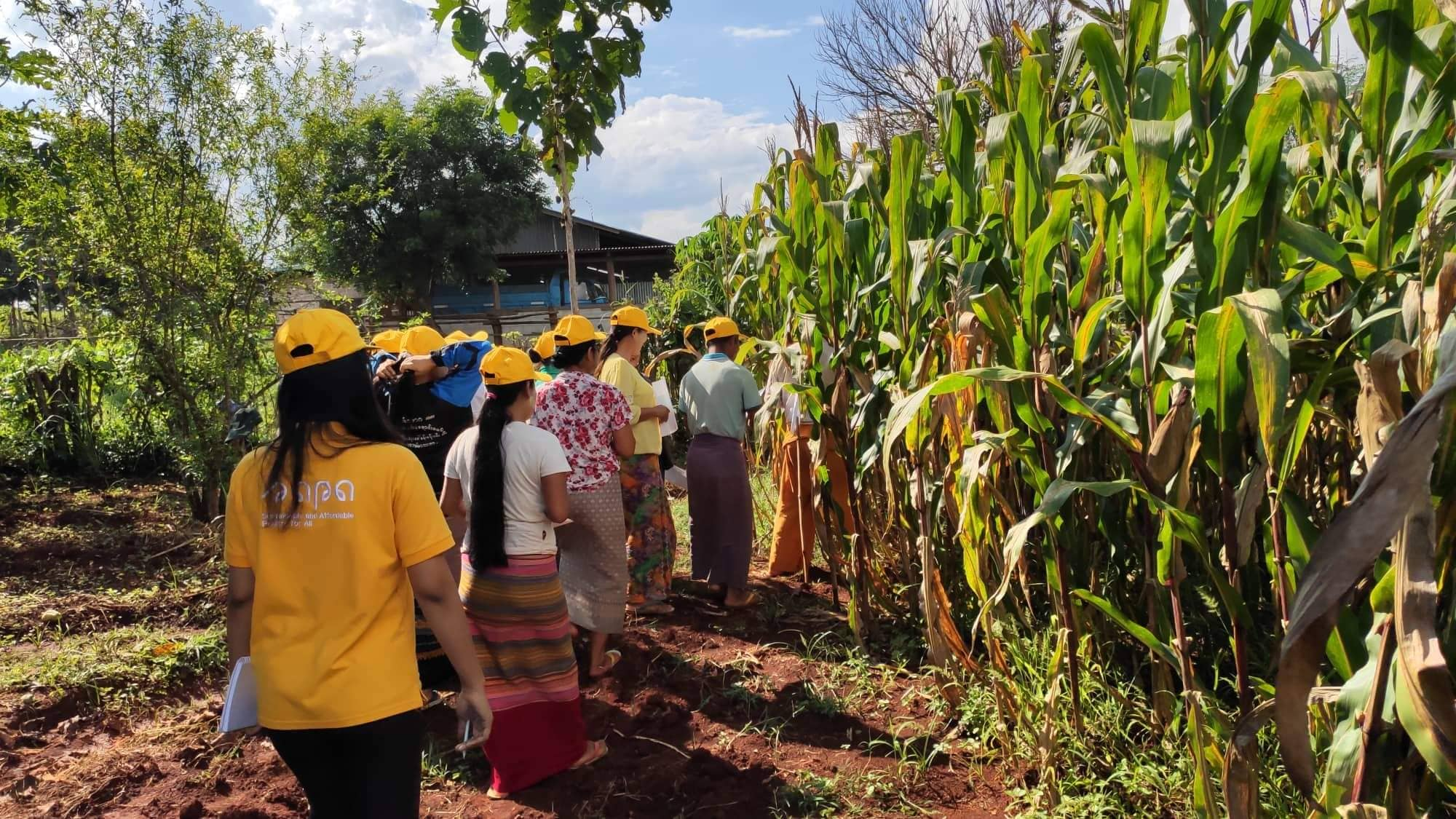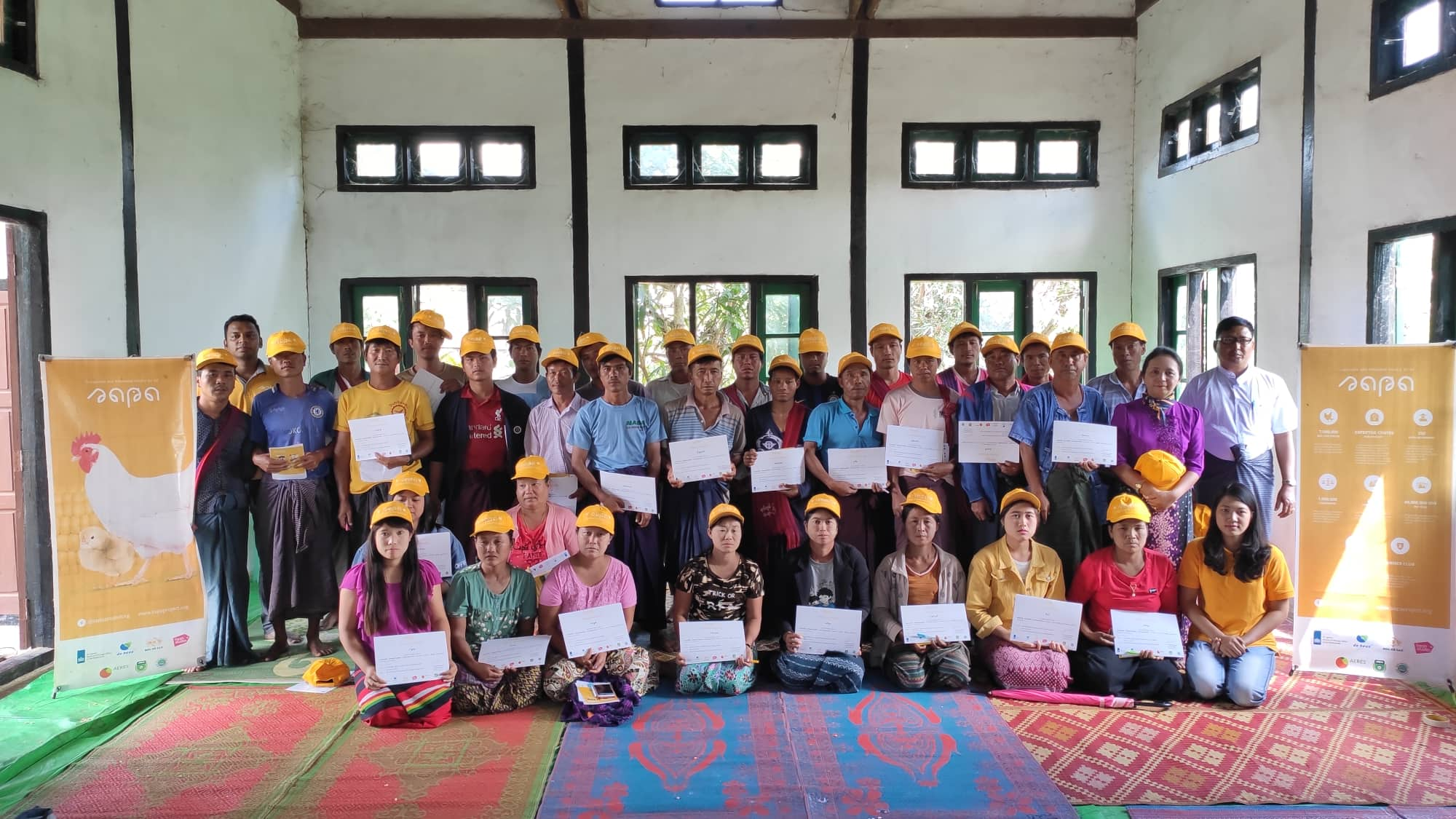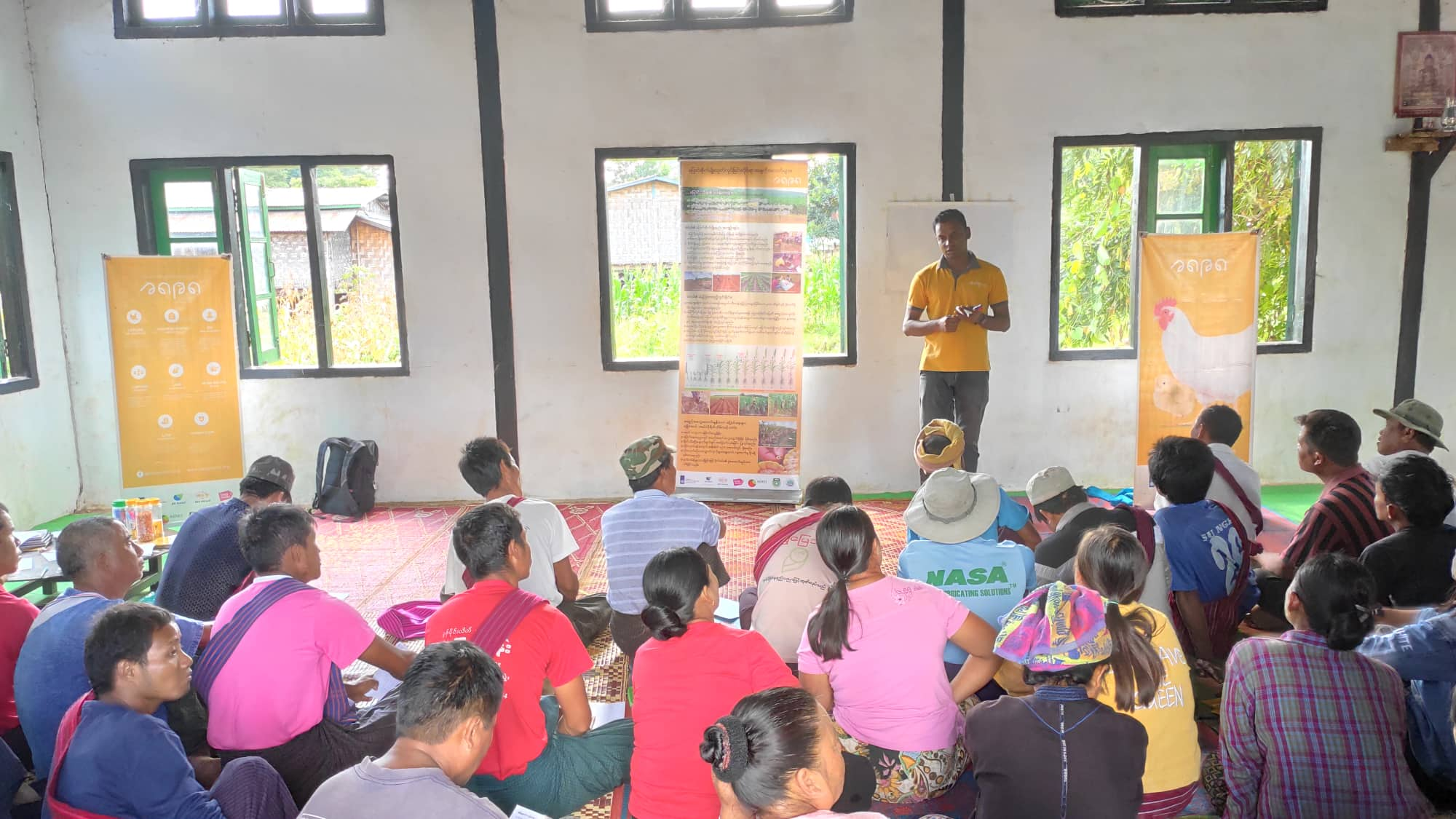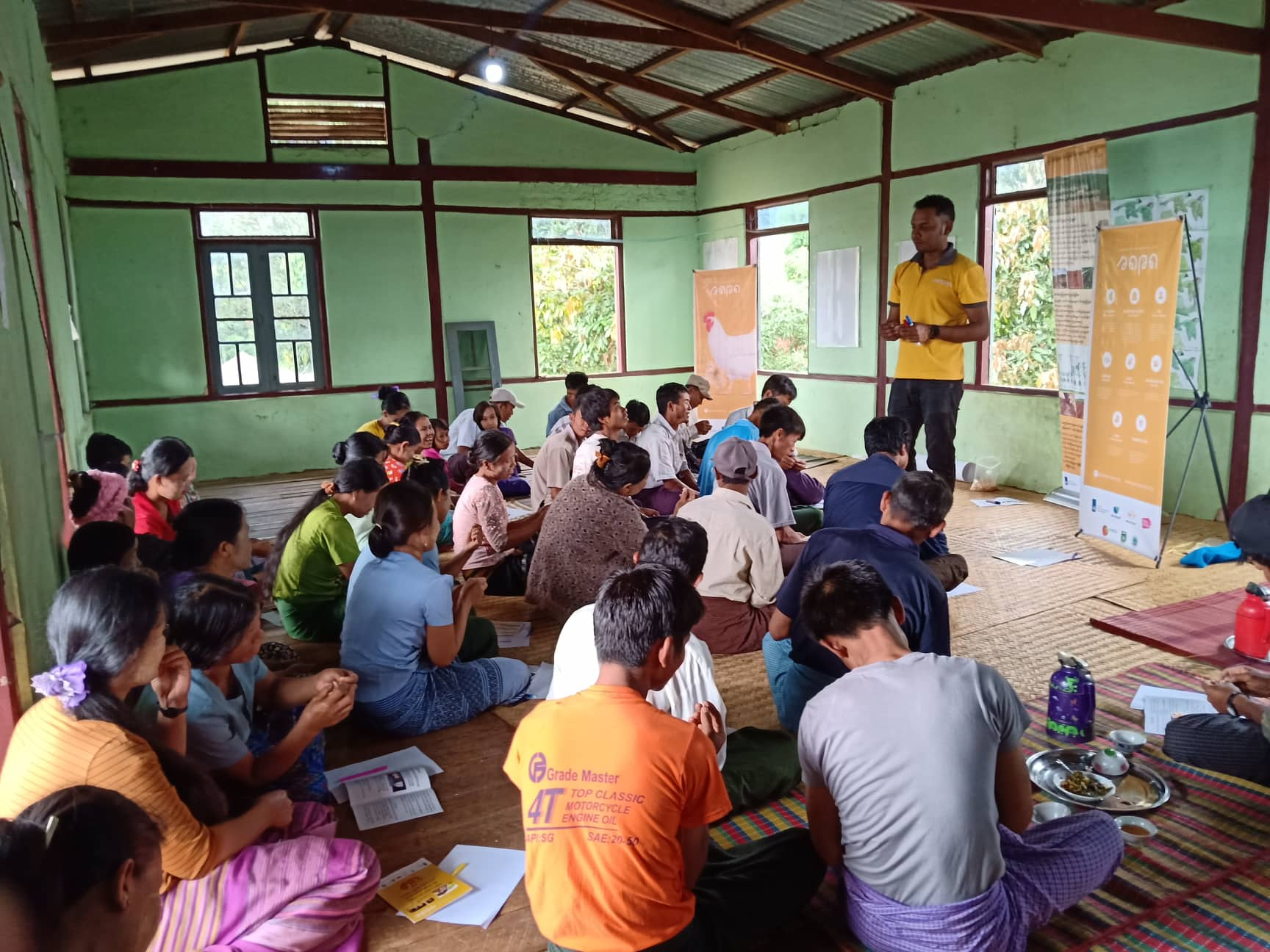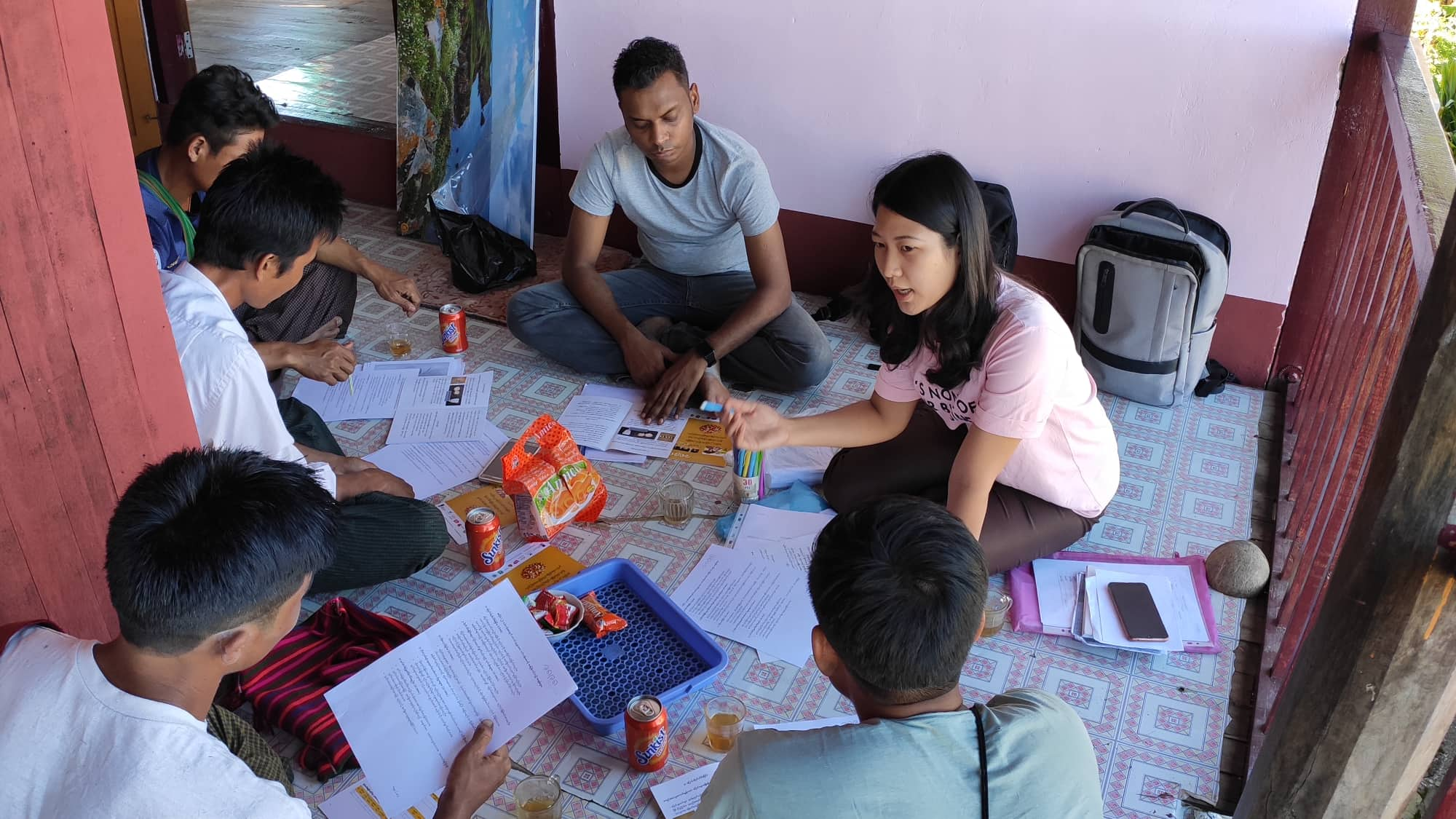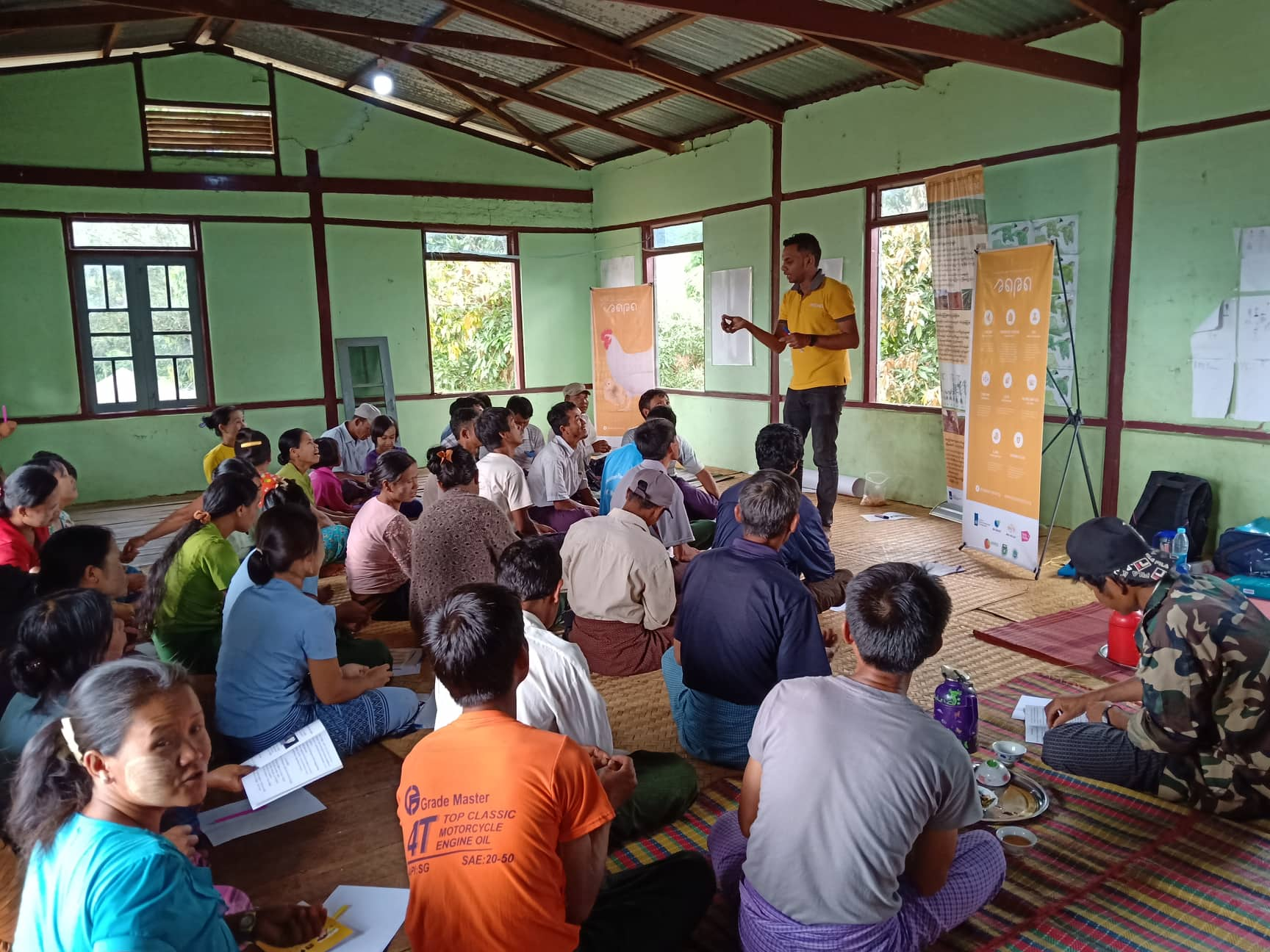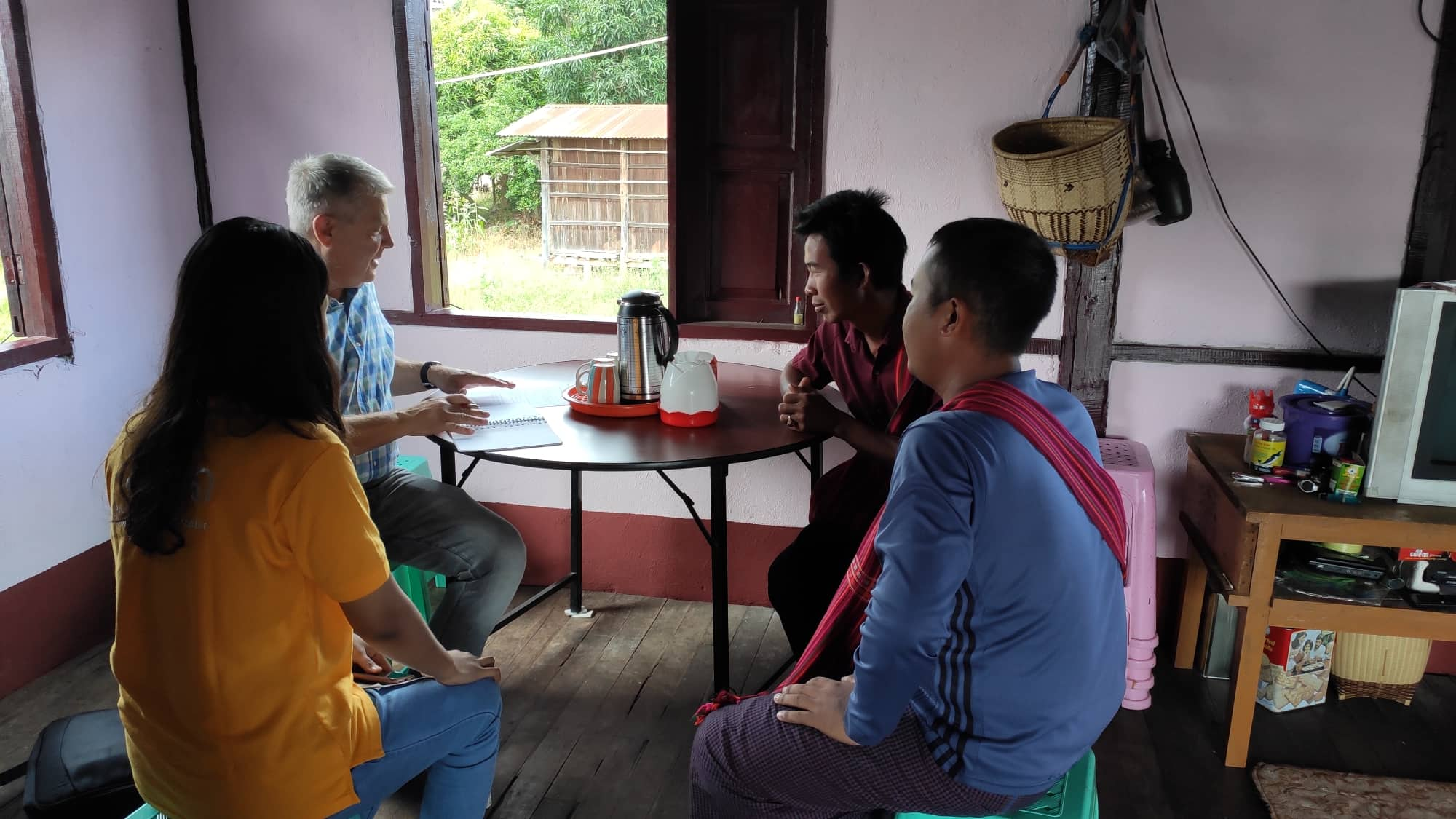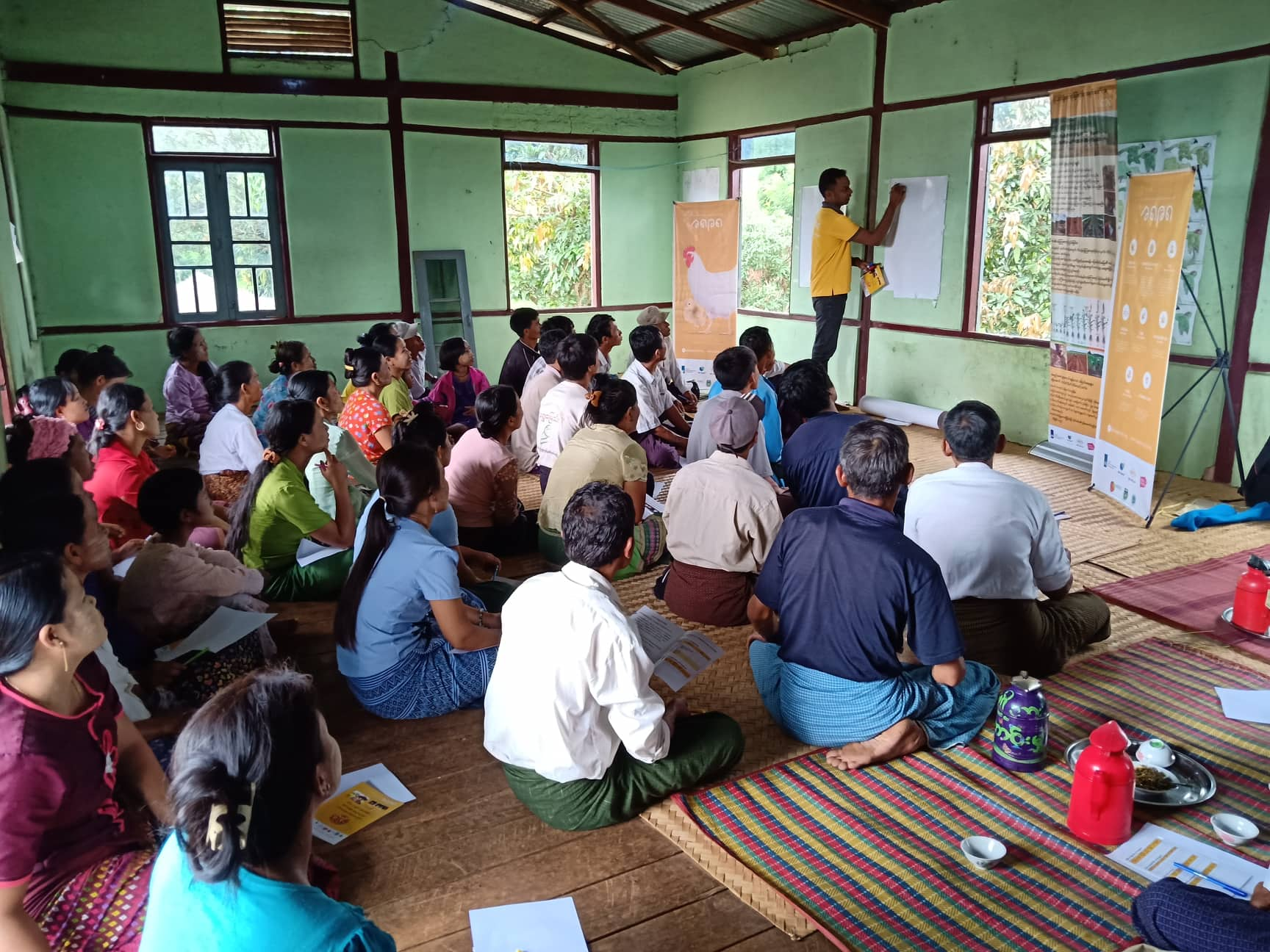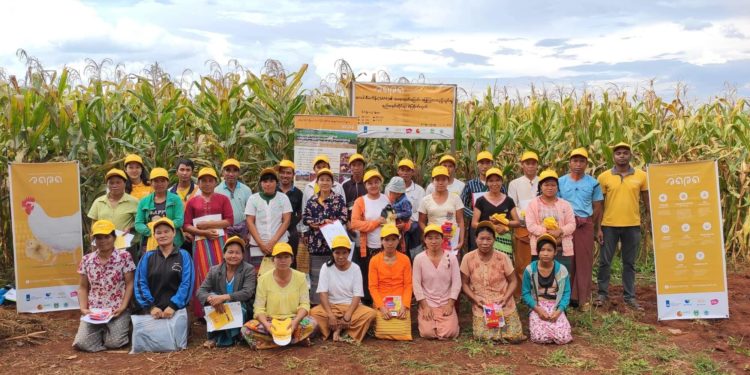
SAPA project milestone: 2500 corn farmers successfully trained
Fresh Studio team has just reached one of the milestones of SAPA (Sustainable and Affordable Poultry for All) result 4, to train the SAPA feed corn production standard to 2500 small holder corn farmers in Myanmar. Fresh Studio Agronomist team consisted out of Ko Thein Win and Ma Hsu Thet Wai Aung started the training since October 2017 with the help of 24 extension staffs in order to implement this project target. After spending about three years in Southern Shan and Kayah State, 2543 small holder corn farmers with 802 females have been trained with not only to train to the farmers but also corn demonstration plots and farmer field days were done in each village in order to see the plant performance of SAPA standard and traditional methods.
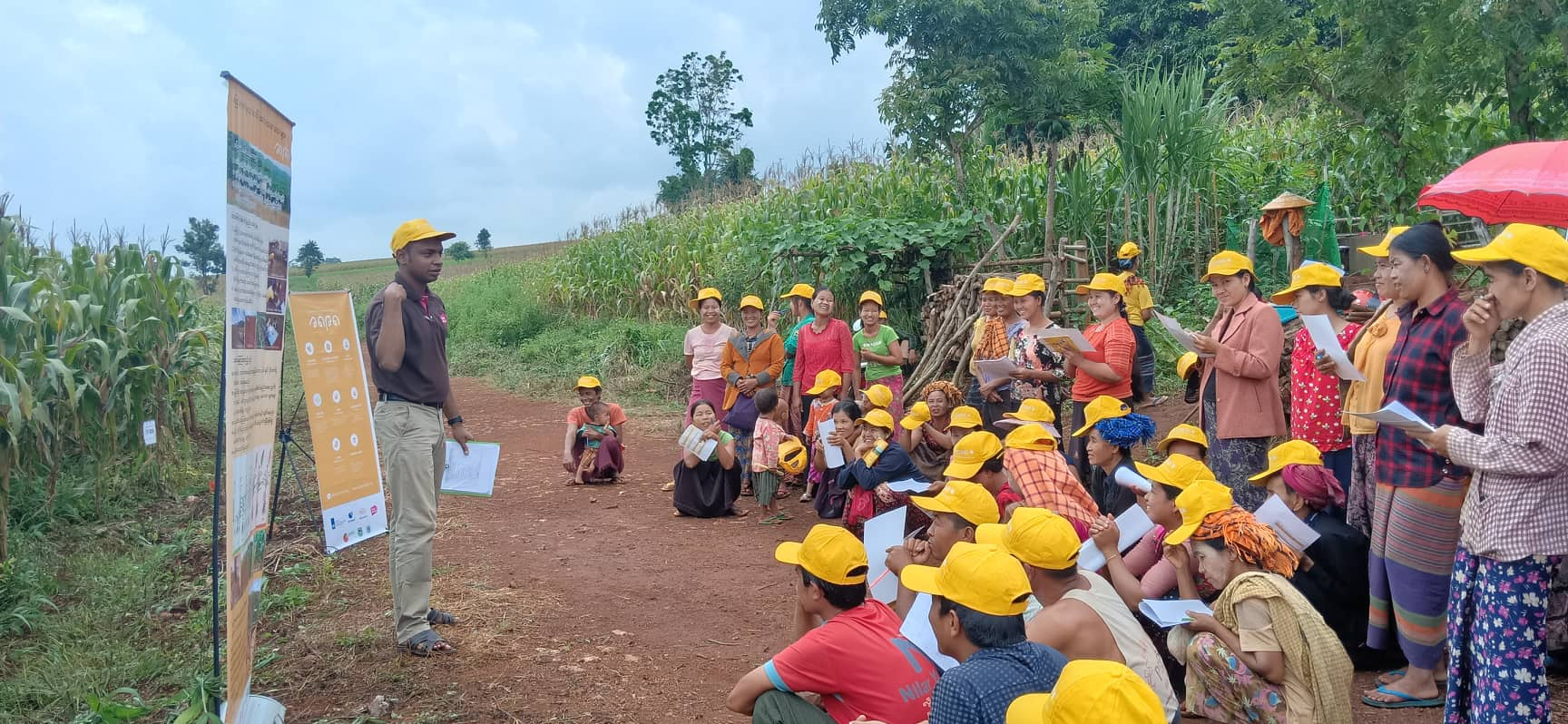
SAPA project active areas have 31 villages located in Taunggyi, Hopone, LawkSawk, Pindaya, Sesai, Pinlaung, Pekon, and Loikaw townships. 24 extension staffs who are supplied by the 12 local corn traders who sell corn to the Deheus feed mill factory (one of the participant of SAPA project) are the same ethnic (Paoh, Shan, Kayan, Danu); they took the responsibility to recruit and monitor the farmers during the corn growing season. They all have received the TOT training for three whole days before starting the farmer training. During the farmer training time and farmer field day, they all assisted to the Fresh Studio team by translation or training with their local language in order to get more effective training to the farmer.
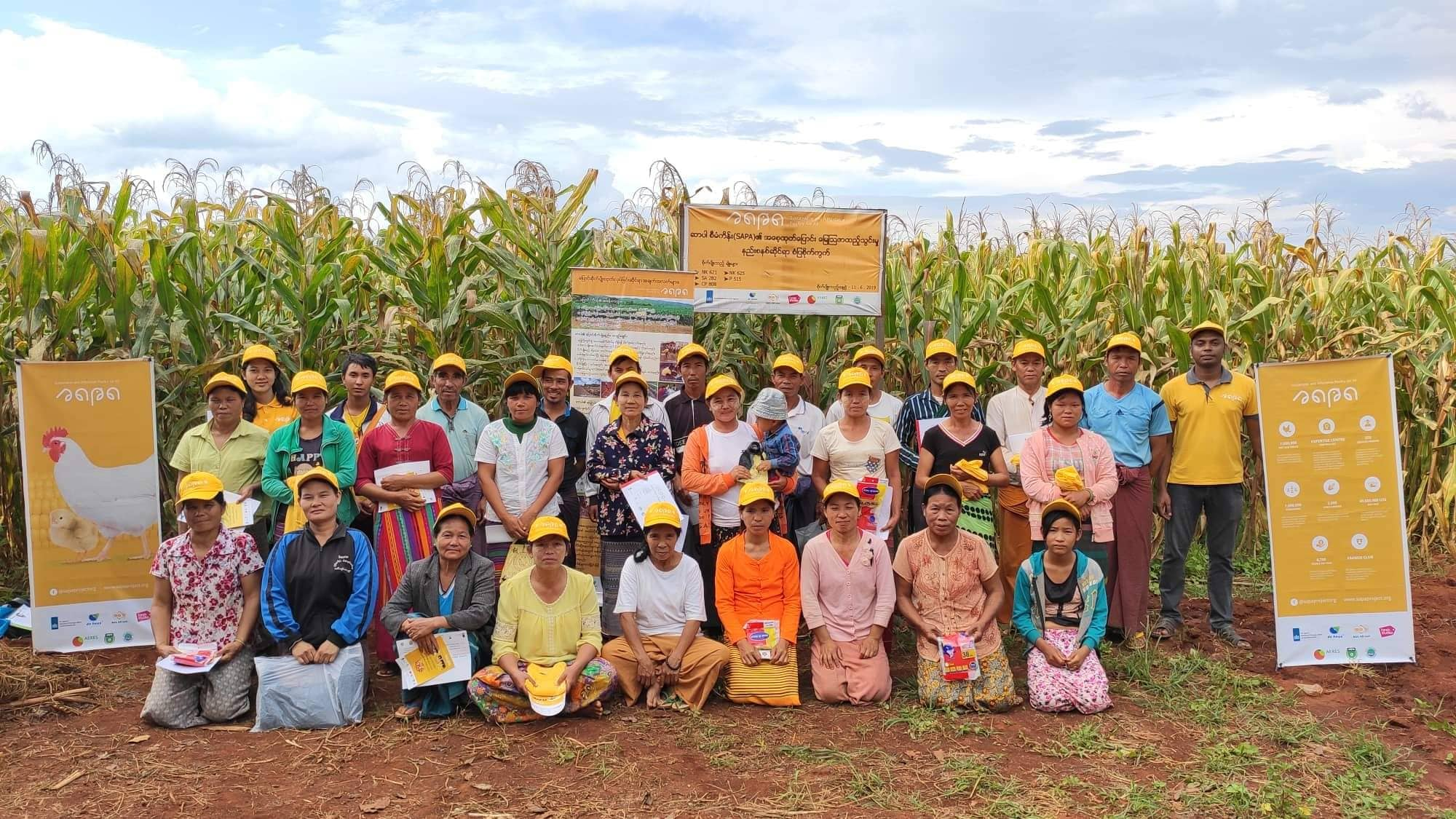
The SAPA feed corn production training consisted of two modules. Module one training was related to soil sampling method, land preparation, sowing, weed control, fertilizer application, pest and disease management strategy. Regarding the fertilizer application, farmers were trained how to select the right fertilizer categories based on cost benefit and high nutrient percentage. Moreover, the fertilizer calculation based on the expected yield was trained not only in the training room but also the extension staff assisted to calculate in the field as well. Integrated Pest Management Strategy (IPM) was trained in order to manage pest and disease as a minimum level by increasing the beneficial insect population. Especially for Fall Army Worm (FAW) management, Trichogramma and other least impact to the environment were introduced to the corn farmer and also shown in the SAPA demonstration plots as well.
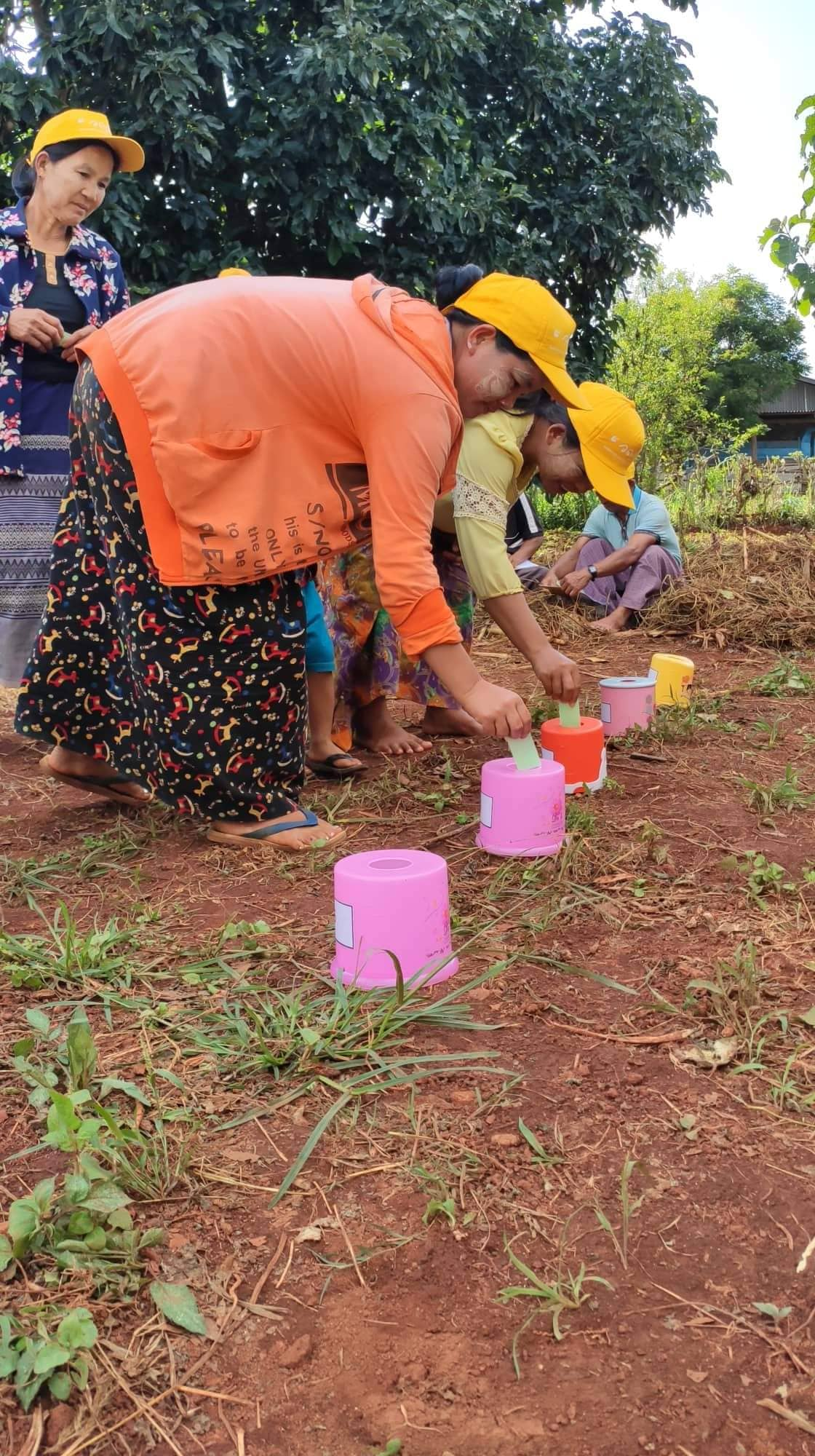
Module two training was about harvesting, post harvesting, storage method and record keeping. The current practices of corn farmers do not consist out of systematic on time harvesting time because of early and late harvesting. Furthermore, most of the farmers do not know about aflatoxin effects forming while moisture of corn seed is high in storage time. During module two, systemic harvesting, post- harvest and storage methods were trained in order to skip the low quality of corn. Every farmer needed to attend two modules, module one before sowing and module two before harvesting in order to finish all training packages of SAPA and then they will get the SAPA training certificate.
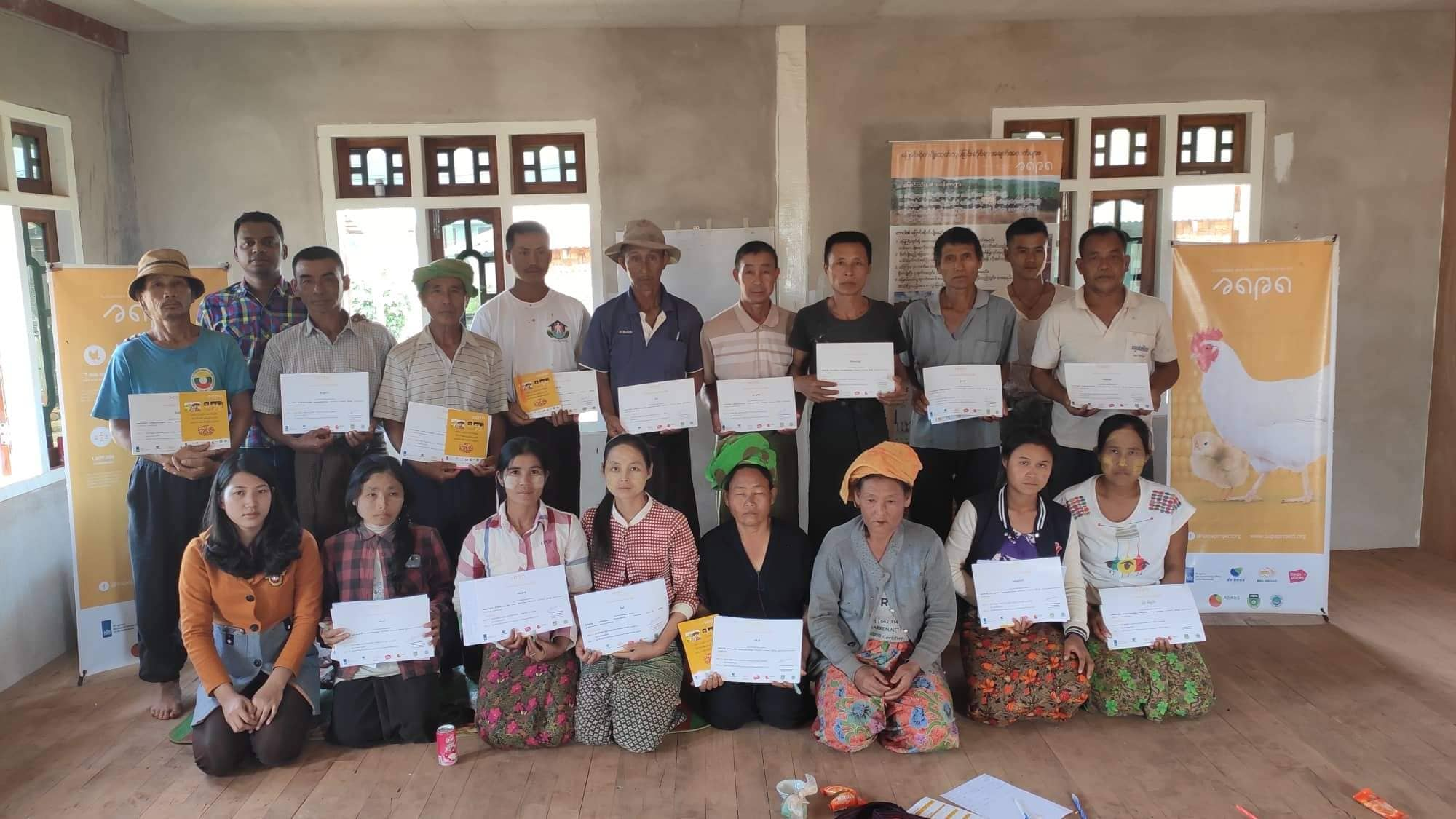
Farmers were really satisfied on the SAPA standard because they can get twice the normal yield, more profit and also a good kernel quality which they never get with their traditional method. After participating to the training and farmer field day in demonstration plot, a lot of famer accepted and changed their corn production standard from their traditional method to SAPA standard.
